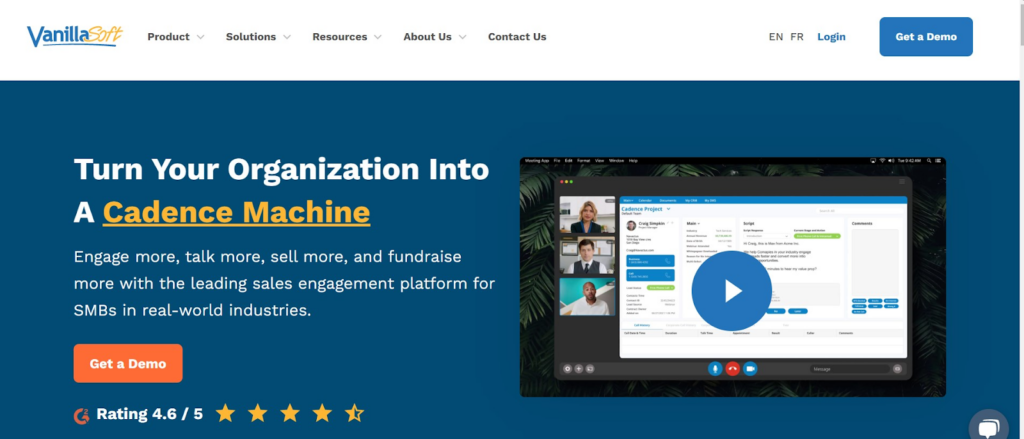Insurance is one of the rapidly growing industries worldwide. The market’s rapid growth undoubtedly brings competition increase in the industry, which means that insurance agents and companies need to be more efficient than ever.
The digital transformation of the world urges insurance companies to adopt new technologies and techniques for gaining more leads and closing more deals.
Customer Relations Management Software (CRM) is one of the most working tools, allowing insurance companies to stay competitive in the market. Insurance CRM software lets them focus more on meeting the client’s needs by offering better customer service, advanced communication, and resolving claims faster.
A Deloitte research has found that an insurance company received 860,000 individual and 80,000 corporate sales leads per month as a result of utilizing an AI-powered support system.
What is Insurance CRM Software?
Insurance CRM Software is designed for automating the entire insurance workflow, leveraging data management, and customer relationships.
Particularly, using an insurance CRM system can help streamline the workflow of an insurance agent, from lead generation to policy rating and issuance, as well as reporting and referral management. It eliminates manual data entry, allowing for more efficient time management.
Why Insurance Companies Need CRM Software
There are a ton of reasons why insurance companies need and must use CRM software for their entire workflow. Let’s cover some of the most crucial ones.
🔸 CRM software is ideal for having centralized client data. It considers having all the client and leads data in a single place without having to keep separate datasheets for each. It is ideal for keeping track of all the customer and lead interactions and having a comprehensive view of each.
🔸 CRM software lets insurance companies level up their customer service. By utilizing an insurance CRM system, they respond to any client claims and inquiries faster and more efficiently. This leads to more leads and clients and higher customer satisfaction.
🔸 With CRM software insurance companies have the opportunity to enhance their marketing strategies. A CRM system is ideal for targeted marketing, enabling companies to segment their customers in detail which allows for targeted marketing campaigns and personalized communication with customers and prospects.
🔸 CRM software helps to boost sales and revenue. It helps insurance companies track leads, manage sales pipelines, and identify cross-selling and upselling opportunities.
🔸 A CRM system is a treasure mine of valuable insights into customer and prospect behavior and preferences. Using insurance CRM software allows insurance companies to make more data-driven decisions and take their operations to a new level.
The List of Insurance CRM Software to Use in 2023
Below, we will review some of the most popular and efficient CRM software used by insurance companies.
#1 Hexospark
Hexospark is an all-in-one CRM and outreach platform that is ideal for insurance companies. Despite being a new software in the industry, it has managed to develop many cutting-edge features to help users stay on top of the competition.
Hexospark offers an excellent combination of a CRM system and an email outreach platform with the capability to send out highly tailored email campaigns, allowing businesses to maximize their lead conversion rate.
Hexospark lets companies and individuals add new leads from anywhere + it has a super-easy browser extension allowing it to capture leads from Linkedin instantly without the need to copy-paste any single data.
The built-in CRM system enables storing and managing unlimited contacts and sending personalized emails at scale. In addition, Hexospark offers automated smart-follow ups helping insurance companies to save tons of time and effort.
Another game-changing feature of this platform is the unified inbox which lets storing all the messages and replies in the cloud without the need for using any additional software. Additionally, it provides team access and the ability for team members to answer emails without accessing each other’s email accounts.
Last but not least, Hexospark provides native email integrations for Gmail and Microsoft Outlook also letting you connect via SMTP for a number of other email providers.
#2 Zoho
Zoho is one of the traditional and best-known CRM platforms used in the insurance industry these days.
The Zoho CRM system can be used to continually acquire leads, determine which ones will convert, and close deals quickly. This leaves more time to focus on other essential tasks. Workflow automation from Zoho insurance agency CRM eliminates tedious manual labor while speeding up processes and optimizing performance.
Zoho allows simple integration with over 100 reputable business applications, including Google Apps, Slack, and Dropbox, to name a few. Furthermore, it is highly customizable to suit various needs and comes with easy-to-follow instructions to get you going quickly.
Another advantage of Zoho is that it has a mobile CRM application allowing to have mobile analytics.
In general, the platform is ideal for sales force automation, analytics, and performance management.
#3 Hubspot
The Hubspot CRM is ideal for small insurance businesses looking to organize, track, and maintain build better client relationships.
Hubspot pipeline management allows companies to detect active deals, identify the most promising leads, and easily choose the best time for closing the deals.
Email and prospect tracking of Hubpsot is incredibly beneficial, providing companies with timely notifications so that they can take the necessary actions (e.g. follow-up with prospects) as soon as possible.
Insurance agents can use the contact management feature and leverage the Outlook and Gmail integrations to get alerts every time emails are opened.
#4 Zendesk Sell
Zendesk Sell is an all-in-one CRM platform designed for B2B and B2C businesses enabling them to track customers, leads, sales management processes, and more.
Zendesk Sell CRM provides a user-friendly interface with all the features insurance companies need in one convenient place. The platform enables the sales process to be streamlined and hassle-free.
Ideal for increasing revenue with its contact and deal generation capabilities, deal management, and activity tracking tools.
Zendesk’s comprehensive email system includes smart lists, customizable templates, automated dialing, and logging, as well as email sequences.
#5 VanillaSoft

This CRM software differs from the rest of the software presented in this article.
VanillaSoft is ideal for utilizing as a call center CRM.
It offers a queue-based lead routing feature which sets it apart from other CRM software that uses list-based lead routing. This has enabled the sales personnel to make an average of 23 calls per hour, 14 more than their counterparts using list-based lead routing. Intellective routing allows them to prioritize leads according to their status (hot, warm, or cold), and work through them in an organized fashion.
VanillaSoft provides additional features like SMS texting and Voicemail Drop, in addition to being compatible with other telephone systems.
Final Thoughts
Insurance CRM Software is an invaluable asset for modern insurance companies and agents.
It offers a comprehensive overview of each customer, as well as an overall view of pending leads. By utilizing the best CRM for insurance agents, you can reduce dropped leads and customer turnover. This single tool also serves as your go-to source to manage all interactions with customers.
In our list, we presented the most effective and trusted CRM systems that can be used by insurance companies and agents. So, if you are looking to try out a comprehensive CRM, these can be the best options for you.
Hi, This is Scoopearth’s admin profile. Scoopearth is a well-known Digital Media Platform. We share Very Authentic and Meaningful information based on Real facts and Verification related to start-ups, technology, Digital Marketing, Business and Finance.
Note: You can reach us at support@scoopearth.com with any further queries.
Linkedin Page : https://www.linkedin.com/company/scoopearth-com/
